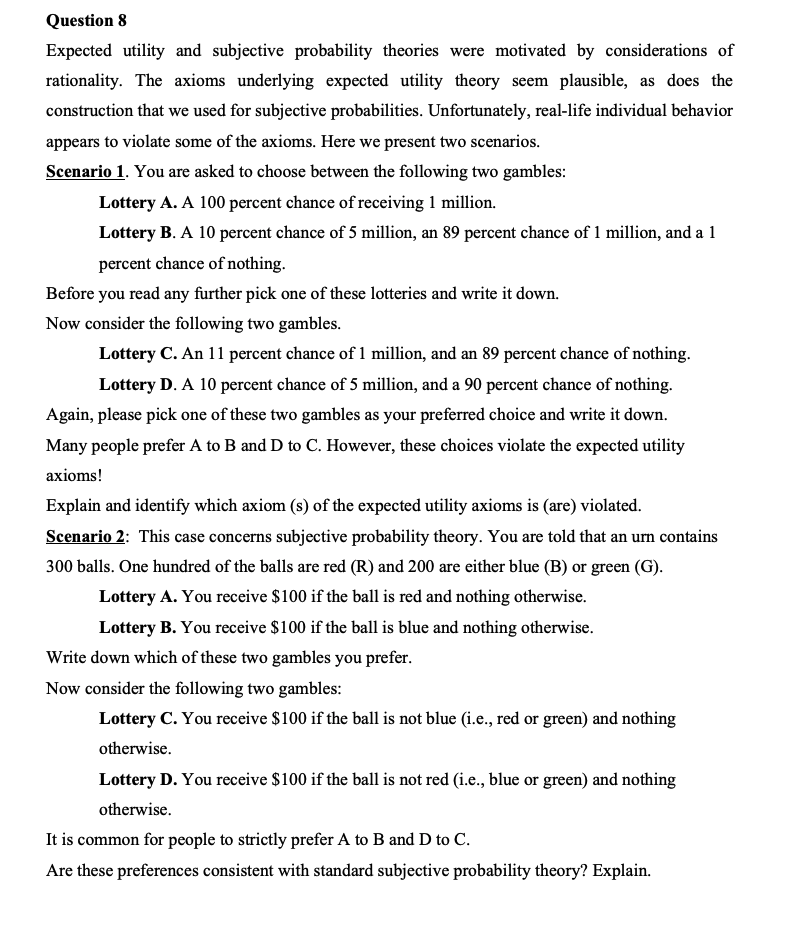Home /
Expert Answers /
Economics /
question-8-expected-utility-and-subjective-probability-theories-were-motivated-by-considerations-o-pa974
(Solved): Question 8 Expected utility and subjective probability theories were motivated by considerations o ...
Question 8 Expected utility and subjective probability theories were motivated by considerations of rationality. The axioms underlying expected utility theory seem plausible, as does the construction that we used for subjective probabilities. Unfortunately, real-life individual behavior appears to violate some of the axioms. Here we present two scenarios. Scenario 1. You are asked to choose between the following two gambles: Lottery A. A 100 percent chance of receiving 1 million. Lottery B. A 10 percent chance of 5 million, an 89 percent chance of 1 million, and a 1 percent chance of nothing. Before you read any further pick one of these lotteries and write it down. Now consider the following two gambles. Lottery C. An 11 percent chance of 1 million, and an 89 percent chance of nothing. Lottery D. A 10 percent chance of 5 million, and a 90 percent chance of nothing. Again, please pick one of these two gambles as your preferred choice and write it down. Many people prefer A to B and D to C. However, these choices violate the expected utility axioms! Explain and identify which axiom (s) of the expected utility axioms is (are) violated. Scenario 2: This case concerns subjective probability theory. You are told that an urn contains 300 balls. One hundred of the balls are red (R) and 200 are either blue (B) or green (G). Lottery A. You receive $100 if the ball is red and nothing otherwise. Lottery B. You receive $100 if the ball is blue and nothing otherwise. Write down which of these two gambles you prefer. Now consider the following two gambles: Lottery C. You receive $100 if the ball is not blue (i.e., red or green) and nothing otherwise. Lottery D. You receive $100 if the ball is not red (i.e., blue or green) and nothing otherwise. It is common for people to strictly prefer A to B and D to C. Are these preferences consistent with standard subjective probability theory? Explain.
Expert Answer
ANSWER: Hi dear, I'm working on the question a
